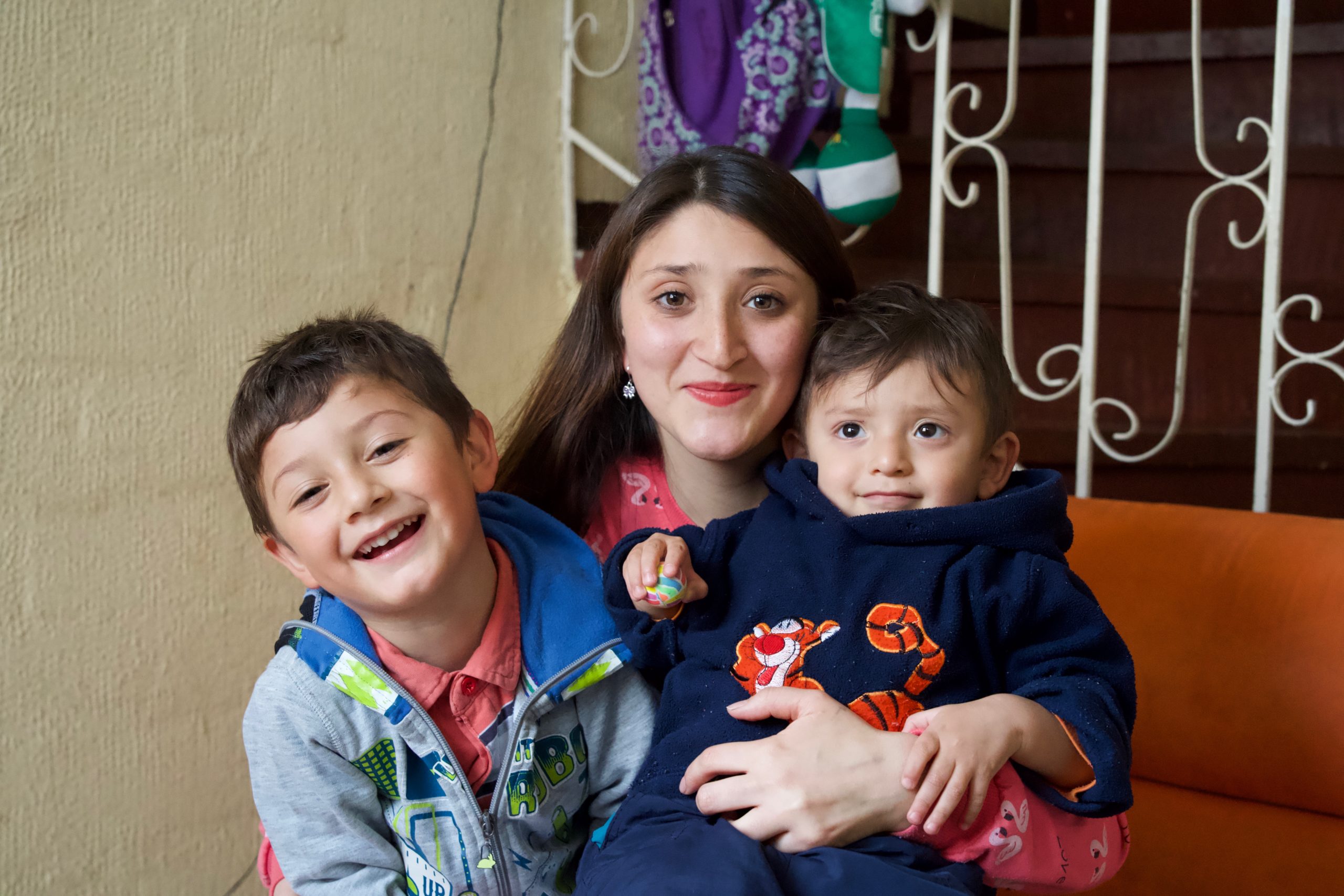What Does Feminist Gender-Neutral Parenting Look Like?
In feminist gender-neutral parenting, you challenge traditional norms, promote individuality, and create a safe, inclusive environment. By dismantling harmful stereotypes and accepting diverse interests, you empower children to be their authentic selves. Teaching consent, respect, and providing gender-neutral toys encourage equality and autonomy. You defy societal expectations by fostering open communication, valuing diverse perspectives, and advocating for social justice. This approach reshapes parenting paradigms to prioritize respect and equity among children, breaking free from traditional gender roles.
Key Takeaways
- Challenges traditional gender norms and stereotypes.
- Creates safe spaces for diverse interests and expressions.
- Teaches consent, respect, and boundaries.
- Provides gender-neutral toys and activities.
- Encourages honest conversations and values diverse perspectives.
Challenging Gender Stereotypes

By actively challenging traditional gender stereotypes, feminist gender-neutral parenting seeks to dismantle harmful societal norms and promote equality among children. This approach involves challenging norms that dictate what toys, colors, activities, and behaviors are deemed appropriate for each gender. By promoting acceptance of a wide range of interests and expressions regardless of gender, parents can create a more inclusive environment for their children.
One way to challenge gender stereotypes is by encouraging children to explore a variety of activities without assigning gender labels. For example, instead of telling a boy that he shouldn’t play with dolls because it’s a ‘girl’s toy,’ parents can promote acceptance by letting him engage in activities based on his interests rather than societal expectations. Similarly, girls should be encouraged to participate in sports or STEM activities without being limited by stereotypes that suggest these areas are reserved for boys.
In essence, feminist gender-neutral parenting advocates for breaking free from the constraints of traditional gender roles and fostering an environment where children can grow and develop based on their individual interests and capabilities rather than societal expectations.
Encouraging Individuality and Expression

Encouraging children to embrace their unique interests and express themselves authentically is a foundational aspect of feminist gender-neutral parenting. By fostering an environment that values personal growth and self-discovery, parents can empower their children to explore their identities without conforming to societal norms. This approach allows kids to develop a strong sense of self and confidence in who they are, regardless of gender expectations.
Encouraging individuality and expression in children means providing them with the space to freely explore their passions and talents. It involves supporting their choices and interests, whether they align with traditional gender roles or not. This support fosters a sense of autonomy and self-assurance that’s essential for maneuvering a world filled with diverse perspectives and expectations.
Through promoting self-discovery and expression, parents can help their children cultivate a deep understanding of themselves and others. This understanding lays the foundation for empathy, respect, and inclusivity, vital qualities for creating a more equitable and compassionate society.
Creating a Safe and Inclusive Environment
To foster a nurturing environment that promotes inclusivity and safety, parents must actively prioritize creating spaces where children feel empowered to be their authentic selves without fear of judgment or discrimination.
When it comes to gender-neutral parenting, incorporating aspects such as gender-neutral clothing choices and inclusive language is essential. By allowing children to choose their clothing based on personal preference rather than societal norms, parents can encourage self-expression and challenge traditional gender stereotypes.
Additionally, using inclusive language that avoids assumptions about gender not only helps children feel seen and respected but also dismantles binary thinking.
Teaching Consent and Respect

In cultivating a feminist gender-neutral parenting approach, instilling lessons on consent and respect is vital for raising conscientious and empathetic individuals. Teaching boundaries is essential in helping children understand personal autonomy and respect the boundaries of others. By setting limits on behavior and interactions from a young age, parents can promote empathy and understanding towards others’ feelings and perspectives.
In this context, teaching consent goes beyond simple statements; it involves fostering a deep-rooted understanding of bodily autonomy and mutual respect. Parents should encourage open communication about feelings and boundaries, emphasizing the importance of asking for and giving consent in all interactions. By promoting autonomy, children learn to make decisions for themselves while respecting the choices of others.
Providing Gender-Neutral Toys and Activities
Teaching consent and respect through boundaries lays the foundation for implementing gender-neutral practices in providing toys and activities for your children.
Gender-neutral education involves offering toys and activities that are inclusive and promote diverse interests. Breaking stereotypes is essential in creating an environment where children can explore activities without being limited by traditional gender roles.
Gender-neutral toys can include building sets, puzzles, art supplies, and science kits, encouraging a wide range of skills and interests without focusing on gender-specific preferences.
Inclusive play allows children to engage with a variety of toys regardless of societal norms, fostering creativity and open-mindedness.
Promoting Equality in Household Chores
Implementing an equitable distribution of household chores is essential in challenging traditional gender roles and fostering a sense of shared responsibility within the family dynamic. Chore equality involves recognizing that household tasks shouldn’t be assigned based on gender stereotypes but rather on a fair and balanced division of labor.
Shared responsibilities mean that all members of the family, regardless of gender, should contribute equally to the upkeep of the household.
By promoting chore equality, you’re breaking away from the idea that certain tasks are inherently feminine or masculine. This shift not only helps dismantle gender norms but also teaches children that everyone should participate in maintaining the home.
Encouraging shared responsibilities ensures that no one individual is burdened with all the household work, promoting a more harmonious and cooperative family environment.
Incorporating chore equality and shared responsibilities into your parenting approach sets a powerful example for your children, showing them the importance of cooperation, mutual respect, and equality within the family unit.
Embracing Diverse Family Structures

Embracing diverse family structures involves acknowledging and celebrating the unique configurations that exist beyond the traditional nuclear family model. By celebrating uniqueness and embracing change, you open up spaces for families that may not fit the conventional mold.
Supporting non-traditional family structures is vital in creating an inclusive environment where all family types are valued and respected. It’s essential to recognize that families come in various forms, including single-parent households, multi-generational families, same-sex parent families, chosen families, and more.
Each of these structures brings its own set of dynamics and challenges, highlighting the importance of valuing inclusion in all family settings.
Fostering Open Communication

You can start fostering open communication by encouraging honest conversations that prioritize understanding over judgment.
Valuing diverse perspectives within your family dynamic can create a safe space for everyone to express their thoughts and feelings without fear of invalidation.
Embracing individual differences allows each family member to be seen and heard for who they truly are, fostering a sense of acceptance and mutual respect.
Encouraging Honest Conversations
Encouraging open communication within the family dynamic is vital for fostering a supportive environment where all members feel heard and respected. Honest conversations play an essential role in dismantling traditional gender norms and promoting equality. By creating a space where everyone’s thoughts and feelings are valued, parents can nurture a culture of respect and understanding.
Encouraging honest conversations involves actively listening to your children’s perspectives without judgment. It means creating an atmosphere where they feel safe to express themselves authentically, even if their views differ from yours. Modeling vulnerability and openness in communication teaches children the importance of honesty and integrity in relationships.
Moreover, honest conversations should extend beyond gender-related topics to encompass a wide range of issues, including race, sexuality, and privilege. By engaging in open dialogue about these intersecting facets of identity, parents can help their children develop a nuanced understanding of social justice and equality.
Encouraging honest conversations lays the foundation for a more inclusive and empathetic family dynamic.
Valuing Diverse Perspectives
To foster a culture of inclusivity and understanding within your family dynamic, it’s important to value diverse perspectives through fostering open communication.
Celebrating uniqueness and embracing differences are vital aspects of creating a safe and accepting environment for everyone. By actively listening to and respecting different viewpoints, you promote inclusivity and validate the experiences of all family members.
Encouraging open dialogue where everyone feels comfortable sharing their thoughts helps build a foundation of mutual respect and empathy. Acknowledging and learning from diverse perspectives not only enriches your family interactions but also cultivates a sense of unity amidst differences.
It’s essential to create space for discussions that challenge societal norms and stereotypes, allowing for personal growth and broadening of understanding.
Embracing Individual Differences
Embracing individual differences within a family setting requires actively fostering open communication to cultivate understanding and inclusivity. Celebrating uniqueness and supporting self-expression are vital aspects of creating a space where every family member feels valued and respected for who they are.
By encouraging open dialogue, you create a platform for sharing thoughts, feelings, and experiences without judgment. This communication style allows for the acknowledgment and celebration of each person’s individuality, fostering a sense of belonging and acceptance within the family unit.
Moreover, embracing individual differences involves recognizing and respecting varying perspectives and identities within the family. It requires a willingness to engage in difficult conversations, challenge stereotypes, and dismantle harmful biases that may exist.
Advocating for Social Justice
You must actively engage in intersectional activism within parenting to dismantle oppressive systems and foster a more inclusive environment.
By challenging traditional gender stereotypes from an early age, you can help create a future generation that’s more accepting and understanding of diverse identities.
Advocating for social justice in parenting is an essential step towards creating a more equitable society for all.
Intersectional Activism in Parenting
Engaging in intersectional activism within parenting involves consciously advocating for social justice by recognizing and addressing the interconnected systems of oppression that impact individuals based on their multiple identities. By empowering children, you can instill in them the confidence to challenge societal norms and fight against discrimination.
Celebrating diversity means actively exposing your children to different cultures, beliefs, and experiences, fostering a sense of inclusivity and respect for all.
As a parent engaging in intersectional activism, it’s essential to educate yourself on various forms of oppression, including racism, sexism, ableism, and more. By teaching your children about privilege, marginalization, and the importance of allyship, you equip them with the tools to navigate and dismantle unjust systems.
Encouraging critical thinking and empathy in your children can help them become compassionate advocates for social change. Remember, intersectional activism in parenting is an ongoing journey of learning, unlearning, and actively working towards a more equitable and inclusive society.
Challenging Gender Stereotypes
Challenging gender stereotypes is essential in advocating for social justice and dismantling oppressive systems that perpetuate inequality. Embracing gender fluidity and breaking societal norms are pivotal steps in empowering children to express themselves authentically. By encouraging children to explore a wide range of interests and emotions without conforming to traditional gender roles, parents can help cultivate a more inclusive and equitable society.
Empowering children to embrace their true selves fosters self-confidence and resilience, enabling them to navigate a world that often imposes rigid gender expectations. By challenging gender stereotypes, parents can create a supportive environment where children feel free to express their individuality without fear of judgment or discrimination. This not only promotes self-expression but also cultivates empathy and respect for diverse identities.
In advocating for social justice through feminist gender-neutral parenting, it’s imperative to dismantle harmful stereotypes that limit children’s potential and reinforce systemic inequalities. By promoting gender inclusivity and encouraging self-expression, parents play a significant role in creating a more just and equitable society for future generations.
Frequently Asked Questions
How Can Feminist Gender-Neutral Parenting Impact a Child’s Self-Esteem?
Feminist gender-neutral parenting challenges harmful gender stereotypes, fostering confidence and self-esteem through positive reinforcement. By encouraging individuality and dismantling societal expectations, children can develop a strong sense of self-worth and empowerment.
What Are Some Practical Ways to Address Gendered Language at Home?
To address gendered language at home, start by recognizing its impact on reinforcing stereotypes. Use inclusive communication to promote equality. Introduce educational toys that challenge traditional gender roles. By being mindful, you can create a more empowering environment for all.
Can Gender-Neutral Parenting Help Prevent Bullying and Discrimination?
Gender-neutral parenting can help prevent bullying and discrimination by promoting LGBTQ+ inclusivity and fostering empathy. Creating safe spaces and promoting acceptance of all gender identities and expressions is essential in raising empathetic, respectful individuals.
How Can Parents Navigate Societal Pressures When Implementing Feminist Parenting?
When addressing societal pressures in feminist parenting, concentrate on overcoming stereotypes, resisting expectations, promoting equality, and ignoring judgments. Stay true to your values, educate others, and create an inclusive environment for your child.
What Resources Are Available to Support Parents in Adopting Feminist Parenting Practices?
To support your journey towards feminist parenting, explore parenting workshops and online forums. These resources offer diverse perspectives, guidance, and a community where you can discuss challenges and strategies for implementing feminist practices in your parenting approach.
Conclusion
To sum up, feminist gender-neutral parenting is a deliberate and intentional approach that challenges traditional gender roles and promotes equality and inclusivity.
By creating a safe and open environment, teaching respect and consent, and embracing diversity, parents can raise children who are empowered to be their authentic selves.
Through advocating for social justice and equality, parents can help shape a more equitable and just society for future generations.

Chad Adan Kace, a young dad from Vermont, shares his parenting journey with a touch of humor and lots of love. Father to a lively baby, he explores the joys and challenges of fatherhood through his stories.







